Community Media Networks: Envisioning the future
ICT4D Collective, ACORAB/CIN (Association of Community Radio Broadcasters/Community Information Network, Nepal); Bangladesh NGOs Network for Radio and Communication, Tac-Together, Cape Town TV, CEMCA (Commonwealth Education Media Centre for Asia)
Session 331
This session draws on the expertise of those involved in developing and using community radio networks over the last 20 years, to share visions for the future evolution of community media (Radio and TV). Community radio has been a fundamentally important means through which information and communication has been shared, especially among some of the most isolated, poorest and most marginalised people in the world, but it has often been forgotten in the drive to use the latest and most expensive incarnations of digital tech for “development”. Radio was indeed mentioned in paras 20 and 90.n of the Tunis Agenda for the Information Society, but community media (radio or TV) were not explicitly mentioned, and more generally they have not yet become the force that they have the potential to be for community cohesion and welfare in many parts of the world. A particular challenge facing some community radio and TV stations is that they have not yet been able to negotiate the transition to digital broadcasting. A core focus of the session is therefore to share advice relating to the most appropriate means of so doing,
The hybrid session (including online and in-person contributions) will be in three parts addressing lessons from the past, visions for the future, and practical advice in resolving the challenges of the digital transition in community broadcasting:
- Introduction Tim Unwin
- Community media over the last 20 year: a retrospective (Moderator: Yuliya Morenets)
- Pramod Tandukar (Executive Director, ACORAB, Nepal) (5 minutes)
- Success stories: (Moderator: Yuliya Morenets)
- AHM Bazlur Rahman (CEO, Bangladesh NGOs Network for Radio and Communication) (5 minutes)
- Lessons learnt (Moderator: Paul Spiesberger)
- Dr. R Sreedher (Tele Learning and Community Radio Practitioner) (video) (5 minutes)
- Visions for the future: the prospects and how we get there (Moderator: Paul Spiesberger)
- Philomena Gnanapragasam (CEO Asia-Pacific Institute for Broadcasting Development) (5 minutes)
- Resolving the challenges of digital transition (a quick-fire 15 min discussion of key advice) Moderator: Tim Unwin
- Conclusion: ways forward for digital community media, Tim Unwin
The session is particularly aligned with the SDGs 1, 9, 10 and 16, and WSIS Action Lines C6, C9 and C12, although community media intersects with many of the other SDGs and WSIS Action Lines.
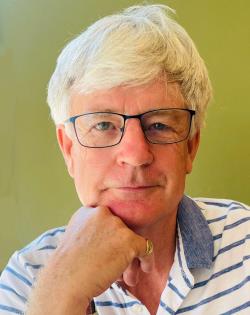
Catalyst ICT4D Collective. He is a British academic and public figure, specialising in the uses of digital technology by the world’s poorest and most marginalised peoples. Trained as a geographer, he believes in crossing boundaries between disciplines and sectors, as well as in the importance of international understanding between peoples and governments
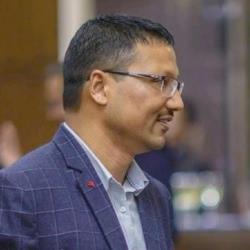
Pramod Tandukar is the Executive Director of the Association of Community Radio Broadcasters (ACORAB) in Nepal. He is passionate about the development of the community radio sector in Nepal and has played a pivotal role in its expansion and development. His leadership and expertise have been instrumental in the formulation of ACORAB’s Strategy-2030 which aims to transform community radio stations into vibrant hubs for local communication and community engagement.
Throughout his career, Pramod has made significant contributions to organisational growth and success, with a focus on strategic leadership, resource mobilization, organizational development, institutional strengthening, partnership development and project management. Prior to his current role, he served at the International Centgre for Intgegrated Mountain Development (ICIMOD). He holds a Master’s degree from Wageningen University in the Netherlands.
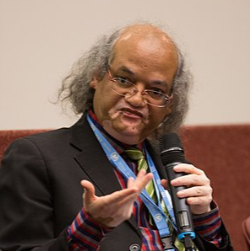
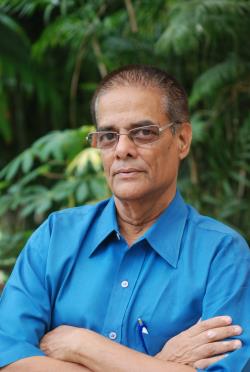
- Dr R. Sreedher is presently the Professor Emeritus, at Apeejay Stya University, Sohna, Delhi and was till recently the Director of Commonwealth Educational Media Centre for Asia (CEMCA).
- He has been working with Electronic media from 1972 onwards in various capacities.
- He joined All India Radio as Assistant Editor Science Reporting in 1976. Was Producer spoken word at AIR Coimbatore , Science officer AIR Chennai from 1980-87, Director of Programmes Education at Delhi from 1988-1993, Dy Director Staff Training, Dy Director Sports, Director Farm and Home, and Station Director at All India Radio Bhopal from 1996-98
- Till today, Dr Sreedher is remembered and sought after for unconventional broadcast formats by AIR like Vinmeen Arimugam En Eppadi, Teleconference with people on the move etc He had conceptualised, devised, produced the world’s largest Radio serial for children titled Human Evolution simultaneously in 18 languages and for 144 weeks.
- He was also the Member of the Innovation Sub Council for Media innovation for Government of India and also on the committee of restructuring Prasar Bharati both of which were headed by Sam Pitroda
- He was one of the three experts at the Technical Expert committee formed to advise the Prasar Bharati Board on all matters relating to All India Radio and Doordarshan from 2012-14
- He worked in Doordarshan in various capacities like Director of Doordarshan Kendra, Kolkata, Controller of programmes Films and sponsored, Chief Producer, DDK , Chennai. He is credited with launching DD movie channel and DD Bangla channe.l.
- Personally he was involved in launching the Gyan Darshan and Gyan Vani EducationalTelevision and FM Channels through IGNOU and before he left IGNOU had the distinction of launching 14 radio channels and four TV channels
- He was also a consultant for UNESCO in revamping the educational media centre in Afghanistan
- Dr Sreedher is associated with the Community Radio Movement from its inception and in fact had a small role even in the formulation of the original as well as revised policies . He has motivated more than 80 Stations out of 110 today. He was responsible for the launch of India’s first community radio station in Anna University Chennai
- Widely travelled abroad – more than 20 countries and also served as consultants to UNESCO, UNICEF and Commonwealth of Learning in matters of Educational media.
- He worked as Director of Educational Media Centres at IGNOU (1998- 2003), Anna University (2003-2005) and IIT Roorkee (2005-2006).
- Finalist at World Technology Network award for Education in 2002 and Elected Fellow of WTN
- He received the National Award for Science Popularisation award in 1991
- He has also won five Akashvani awards for innovative radio production.
- He was the syndicate member of Tamilnadu open university and also held several positions in Research Councils of CSIR, Boards of National Institute of open Schooling, Consortium of Educational Communication, UGC, Indian Institute of Mass Communication, Vigyan Prasar , Academic council member of several universities, Board of studies member of many institutions and Visiting Faculty at various Educational Instit
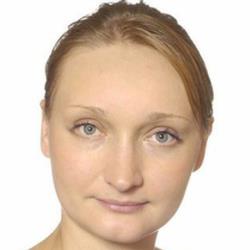
Yuliya leads non-profit organisation TaC-Together against Cybercrime International, which works on the empowerment of users on safe and responsible Internet, child online protection and the Internet Governance issues. TaC International proposes victim assistance, works on educational tools for professionals (such as law enforcement or judges) and corporate users, as well as develop awareness raising activities mainly through its Youth IGF project.
Yuliya is an expert belonging to a number of international organisations on ICT markets and cybercrime/cybersecurity and author or co-author of a number of regulatory texts in different countries. She regularly advises governments and private sector entities on cybersecurity strategies.
Yuliya has co-initiated such projects as: Youth IGF Movement (2011), EU Observatory on better participation of vulnerable groups in the Information Society (2016) or the Empowerment of vulnerable children online (2013).
She recently initiated a development of awareness-raising tools for users on cybersecurity, together with the University of Beira Interior (Portugal).
Yuliya is an appointed #SaferInternet4EU Ambassador by the EU Commissioner for Digital Economy and Society and former MAG member to the UN SG on the IGF - Internet Governance Forum (three terms).
She is a graduate from the Institute of Political Sciences of Paris and also holds a Master degree in European Affairs and the L.L.M. in Internet Law.
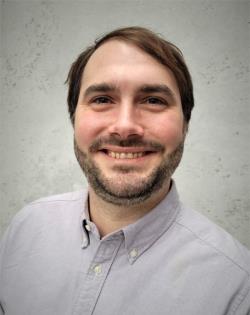
Paul has been the chairman of ICT4D.at since 2014 and in his spare time enjoys using his skills for the common good. He graduated as a computer scientist with a focus on media informatics from the Vienna University of Technology, where he is currently also doing his PhD. He works with INSO (the Research Group for Industrial Software) as a researcher and lecturer in the field of mobile technologies and ICT4D. He is currently employed as a software developer for mobile technologies within a fast growing Austrian company. He has won several national and international awards for his innovative work at Os – a collective to tackle social issues through the use of ICTs
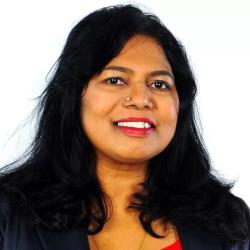
-
 C6. Enabling environment
C6. Enabling environment
-
 C9. Media
C9. Media
Community media is an important means enabling the overall objectives of WSIS to be achieved (C6) and is a form of media (C9). It also impacts many other Action Lines less directly.
-
 Goal 1: End poverty in all its forms everywhere
Goal 1: End poverty in all its forms everywhere
-
 Goal 9: Build resilient infrastructure, promote sustainable industrialization and foster innovation
Goal 9: Build resilient infrastructure, promote sustainable industrialization and foster innovation
-
 Goal 10: Reduce inequality within and among countries
Goal 10: Reduce inequality within and among countries
-
 Goal 16: Promote just, peaceful and inclusive societies
Goal 16: Promote just, peaceful and inclusive societies
Community media contributes especially to the ending of poverty (1), building resilient infrastructure (9), reducing inequalities (10) and promoting peaceful and inclusive societies (16). It also impacts many other SDGs less directly.
https://ict4d.org.uk/
https://www.acorab.org.np/
https://www.cinkhabar.com/
https://bnnrc.net
https://capetowntv.org/
https://www.ict4d.at/
Twitter: @ICT4DCollective
Facebook groups: https://www.facebook.com/groups/2553350463 and https://www.facebook.com/groups/31033330019